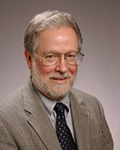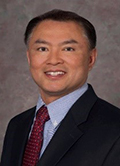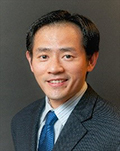2020 Research Achievement Awards
-

Paul Bergstresser, MD
UT Southwestern Medical Center
2020 David Martin Carter Mentor AwardDr. Bergstresser has served on the faculty of the UT Southwestern Medical School since 1976 and the Southwestern Graduate School of Biomedical Sciences since 1980. Under his leadership, the Department of Dermatology received a National Institutes of Health Skin Disease Research Center Grant for three cycles (15 years) and the Academy of Dermatology Award for Excellence in Education in 1992. Dr. Bergstresser is an elected member of the American Dermatological Association, a member of the American Association of American Physicians and has been a Director of the American Board of Dermatology, consultant to the National Psoriasis Foundation Tissue Bank, and past-editor of the medical journals - Photodermatology, Photoimmunology and Photomedicine and the Journal of Investigative Dermatology. Work from his laboratory has concerned the effects of ultraviolet B (UVB) radiation on immunity in skin. His current research concerns the early diagnosis of melanoma.
-

Marcus Bosenberg, MD, PhD
Yale University
2020 Research Achievement Award in Vitiligo and Pigment Cell BiologyDr. Bosenberg is Professor of Dermatology, Pathology, and Immunobiology at Yale University. He is a physician-scientist, practicing dermatopathologist, melanoma researcher, and immunobiologist. His research efforts have focused on determining the combinatorial effects of human melanoma-relevant genetic changes on melanoma formation and progression in leading genetically engineered mouse models of melanoma. More recently, he has developed widely utilized immunogenic syngeneic models to evaluate the mechanisms and characteristics of therapy-induced anti-melanoma immune responses. He served as Co-Editor-In-Chief of Pigment Cell & Melanoma Research and is Director of the Yale SPORE in Skin Cancer. He also serves as Director of the Center for Precision Cancer Modeling, Interim Director of the Yale Center for Immuno-Oncology, Co-Leader of the Genetics, Genomics & Epigenetics Program at the Yale Cancer Center and the Director of Dermatopathology Research within the Department of Dermatology at Yale University.
-

Howard Chang, MD, PhD
Stanford University
2020 Inaugural Research Achievement Award in DiscoveryDr. Chang is Director of the Center for Personal Dynamic Regulomes and the Virginia and D.K. Ludwig Professor of Cancer Genomics at Stanford University. He is a Howard Hughes Medical Institute Investigator; he is also Professor of Dermatology and of Genetics at Stanford University School of Medicine. Chang earned a Ph.D. in Biology from MIT, M.D. from Harvard Medical School. His research addresses how large sets of genes are turned on or off together, which is important in normal development, cancer, and aging. Chang discovered a new class of genes, termed long noncoding RNAs, which can control gene activity throughout the genome, illuminating a new layer of biological regulation. He invented ATAC-seq and other new methods for defining DNA regulatory elements genome-wide and in single cells. The long-term goal of his research is to decipher the regulatory information in the genome to benefit human health.
Dr. Chang's honors include the NAS Award for Molecular Biology, Outstanding Investigator Award of the National Cancer Institute, Paul Marks Prize for Cancer Research, Judson Daland Prize of the American Philosophical Society, and the Vilcek Prize for Creative Promise. He is a Member of the National Academy of Sciences, National Academy of Medicine, American Academy of Arts and Sciences, American Society for Clinical Investigation and Academia Sinica. His work was honored by the journal Cell as a Landmark paper over the last 40 years and by Science as "Insight of the Decade".
-

Emma Guttman-Yassky, MD, PhD
Icahn School of Medicine at Mount Sinai
2020 Research Achievement Award in Autoimmunity and InflammationDr. Guttman-Yassky is a world-renowned dermatologist whose study of molecular and cellular pathomechanisms of inflammatory skin diseases, and particularly eczema/atopic dermatitis (AD) and recently also alopecia areata in humans is opening the doors to new therapeutic discoveries and new treatments for patients. She serves as Vice Chair of Research in the Kimberly and Eric J. Waldman Department of Dermatology, Professor in the Departments of Dermatology and Immunology, Director of the Center for Excellence in Eczema, and Director of the Laboratory of Inflammatory Skin Diseases at the Icahn School of Medicine at Mount Sinai. She earned her medical degree from the Sackler School of Medicine at the Tel-Aviv University, and a PhD degree from the Bar-Ilan University Ramat-Gan, both in Israel.
Dr. Guttman-Yassky has developed comprehensive molecular maps of AD, defining skin differentiation and immune-circuits characterizing this disease. Her work led to current testing and development of novel treatments for AD targeting Th2, Th22, and Th17/IL-23 axis. She has recently also extended her research interest to alopecia areata, and other inflammatory skin diseases, where she is also translating her findings to possible novel therapeutic targets. In 2014, Dr. Guttman-Yassky co-founded the International Eczema Council, an organization that is now including more than 100 of the world’s leaders in eczema, and currently serves as its president. Dr. Guttman-Yassky has received numerous national and international awards and has co-authored more than 200 articles.
-

Samuel Hwang MD, PhD
UC Davis School of Medicine
2020 Research Achievement Award in PsoriasisDr. Hwang is a board-certified dermatologist with extensive training as a physician scientist. Starting as a scientist and then becoming a senior scientist at NIH, Dr. Hwang has had over 20 years of experience in the field of leukocyte and cancer cell trafficking and has had a long-standing interest in the role of chemokine receptors, including CCR6 and CXCR4 in immune cells as well as cancer cells. He has two major scientific interests: psoriasis, for which he has had NIAMS R01 and SBIR funding, and cutaneous T cell lymphoma, for which he is actively engaged in developing new therapeutic approaches. Prior to being appointed tenured Chair and Professor of Dermatology at the University of California, Davis in 2016, he was Chair and Thomas Russell Professor of Dermatology at the Medical College of Wisconsin. He has published more than 70 original and review articles.
He and colleagues at the Medical College of Wisconsin and NIH were among the first to conclusively demonstrate the role of CCR6 in the development of psoriasiform dermatitis (analogous to human psoriasis). Dr. Hwang’s team has earned an international reputation in the use of murine models of psoriasis and CTCL for exploration of disease pathogenesis and treatment. He and his lab proved that CCR6 was critical for the trafficking of epidermal gamma-delta T cells to the skin as Th17 effectors in murine models of psoriasis. His lab has also shown that checkpoint inhibitors, specifically PD-1, regulate psoriasiform dermatitis in mice; this work was the first experimental model to replicate a now widely reported side effect of anti-PD-1 mAb treatment for cancer in humans.
-

David Peng, MD, MPH
University of Southern California
2020 Research Achievement Award in Public Policy and Medical EducationDr. Peng is Chair and Professor of the Department of Dermatology at the Keck School of Medicine of USC and President of the USC Care Medical Group. Dr. Peng earned his MD at the University of California, San Diego, and his Master’s degree in Public Health at the University of California, Los Angeles. Dr. Peng became interested in teaching and mentorship, eventually serving as Residency Program Director at USC and at Stanford University.
Dr. Peng began a gradual transition to focus on academic operations, policy and clinic management. These interests eventually led him back to USC where he has served as Chair of the Department since 2013. He has also chaired a number of School and University committees, most recently representing the School of Medicine on the committee to select the 12th President of the University of Southern California. In 2019, he took over as President of the USC Medical Group, which includes 2200 faculty physicians. In March 2020, he relearned how to use a stethoscope, while leading the USC physician response to Covid-19.
-

Hensin Tsao, MD, PhD
Harvard Medical School/Massachusetts General Hospital
2020 Research Achievement Award in Skin Cancer and MelanomaDr. Tsao is Professor of Dermatology at Harvard Medical School and serves as the Director of both the MGH Melanoma and Pigmented Lesion Center and the MGH Melanoma Genetics Program. He is also the Head of the Skin Cancer Genetics Laboratory in the Wellman Center for Photomedicine at MGH where he oversees a research program in melanoma genetics and therapeutics.
In 2001, Dr. Tsao joined the Wellman Center for Photomedicine and Department of Dermatology at MGH, where he established the Skin Cancer Genetics Laboratory and the MGH Melanoma Genetics Program in order to better understand the molecular basis of melanoma predisposition, progression and therapeutic response. In addition to his scientific program, in 2005, he became the Director of the MGH Melanoma and Pigmented Lesion Center, which is the oldest multidisciplinary melanoma unit in the country. Dr. Tsao is the author of over 230 peer-reviewed research articles, reviews, abstracts, textbook chapters and online media texts.
Dr. Tsao graduated Magna Cum Laude from Brown University with a degree in Biochemistry and English. In 1993, he graduated from the Columbia University College of Physicians and Surgeons with an MD degree and Columbia University Graduate School of Arts and Sciences with a PhD degree in Biophysics/Biochemistry.
Recipients list by year: 2025 | 2024 | 2023 | 2022 | 2021 | 2020




